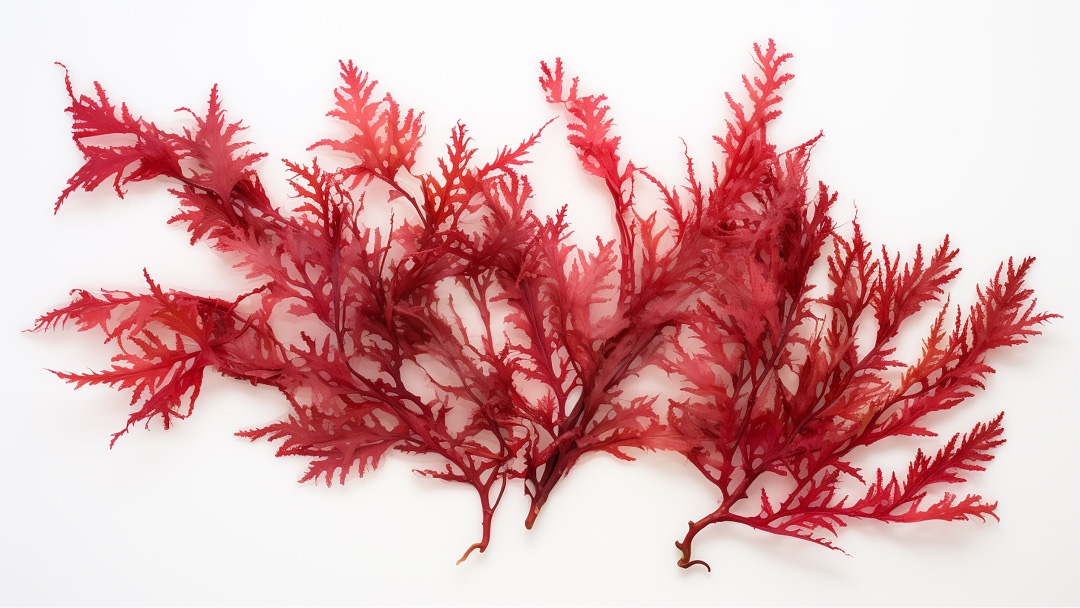
A study has found that incorporating a fermented mixture of Gelidium corneum seaweed by-product into European seabass diets can influence gut microbiota without negatively impacting immune health, offering new scope for circular economy practices in aquaculture.
In a move towards more sustainable aquaculture, researchers from Portugal and Spain have demonstrated that a solid by-product derived from Gelidium corneum-a red seaweed commonly used in industrial agar production- can be repurposed as a functional feed ingredient for seabass, particularly after being processed through solid-state fermentation with the fungus Aspergillus ibericus.
The study, published in Animal Feed Science and Technology, explored the effects of adding 10% of a 1:1 mixture of Gelidium by-product and sunflower cake (referred to as Gmix), either fermented or unfermented, on the gut health, oxidative stress and immune markers in juvenile European seabass (Dicentrarchus labrax).
“Overall, including either unfermented or fermented Gmix in the diet of European seabass did not appear to adversely affect intestinal oxidative or immune status but modulated intestinal microbiota,” the authors note.
One of the study’s key findings was that Gmix modulated the fish’s intestinal microbiota-most notably within the digesta. The inclusion of Gmix, whether fermented or not, led to increased microbial diversity. There was a rise in the abundance of genera such Streptococcus, Exiguobacterium and Bacillus, and a reduction in Lactobacillus compared with fish on the control diet.
While markers such as plasma lysozyme and peroxidase levels, and the expression of immune-related genes in the distal intestine, remained unchanged across treatments, fish receiving the fermented diet showed significantly increased activity of glutathione peroxidase-a key antioxidant enzyme. This was accompanied by higher levels of oxidised glutathione, suggesting enhanced activation of antioxidant defences.
“Overall, these results suggest that lipid peroxidation was unaffected by dietary treatments and suggest the activation of both glutathione-dependent and glutathione-independent mechanisms. Notably, glutathione-dependent mechanisms for hydrogen peroxide detoxification seemed to be enhanced in fish fed diets incorporating fermented Gmix with A. ibericus.”, the researchers explain.
Gelidium corneum by-product, typically discarded after agar extraction, are rich in protein and carbohydrates. Their reuse as aquafeed components aligns with the principles of a circular economy-reducing waste and dependence on conventional feed sources such as maize gluten or soybean meal.
Fermentation with A. ibericus not only reduces indigestible fibre content but also enhances the nutritional quality of Gmix. Previous trials by the same research team had already shown improved feed and protein utilization efficiency with fermented Gmix.
Though promising, the authors caution that further research is needed. Studies involving long-term feeding trials, stress responses assessments, and pathogen challenge test will be essential to better understand how fermented seaweed by-products interact with fish physiology under real-world conditions.
The research received support from the Portuguese Foundation for Science and Technology and Spain’s Beatriz Galindo Programme. The Gelidium by-product was kindly provided by Iberagar SA.


